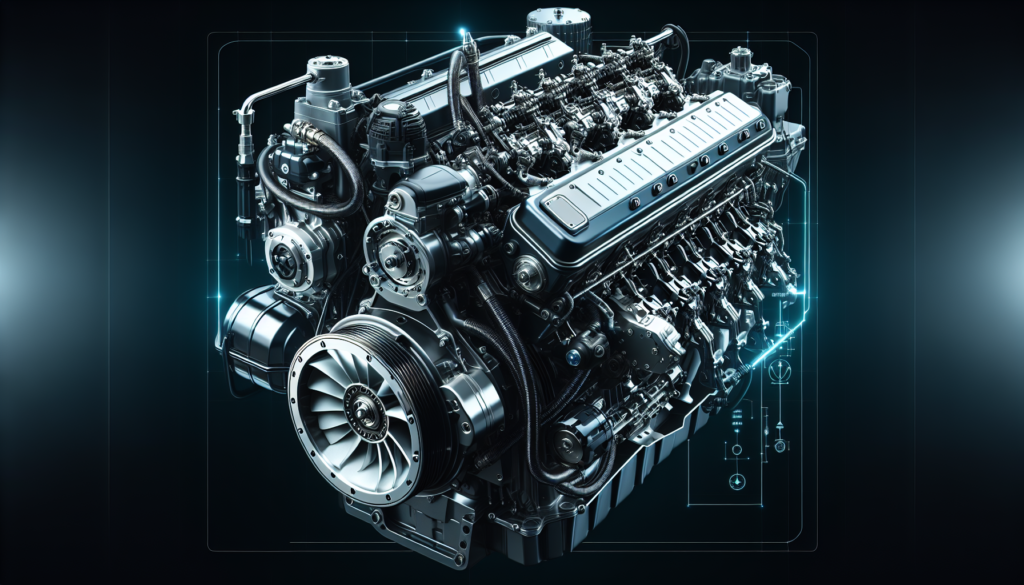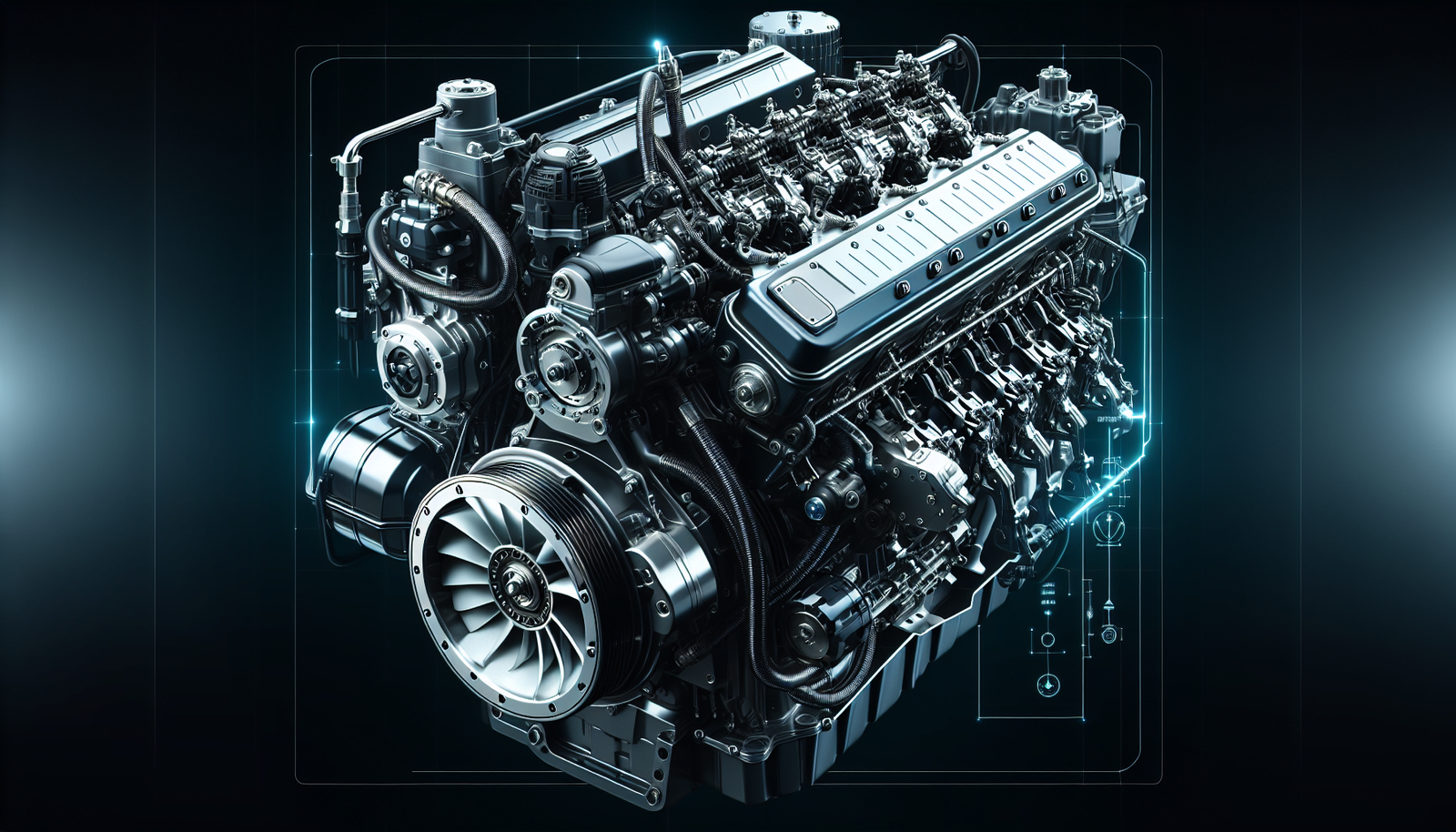Imagine you’re about to buy your first fishing boat or upgrade the one you currently own. It’s amazing, isn’t it? But then you remember a crucial detail; the fishing boat engine. Getting the right engine is as important as the boat itself. This article will shed light on the key features you need to look for in a fishing boat engine, such as fuel efficiency, horsepower, weight, and reliability. This will guide you in making an informed decision that will best suit your fishing adventures.

Type of Engine
Choosing the right type of engine for your fishing boat is a crucial consideration. The type of engine not only affects the boat’s performance, but it can also impact things like the cost, durability, and efficiency of your vessel. There are various types of engines that you might consider when selecting for a fishing boat.
Inboard Engines
Inboard engines are installed inside the boat, usually near the center. These engines are typically more powerful and can offer smoother operation than outboard or stern drive engines. Their hidden placement also keeps them safe from the elements which adds to their lifespan. When choosing an inboard engine, you should consider its power, the size of your boat, and the conditions in which you’ll be boating.
Outboard Engines
Outboard engines are mounted on the back of the boat. They are easy to manage, maintain, and repair due to their accessibility. These engines are quite versatile and can work well for a variety of fishing boat sizes and styles. Compared to inboard engines, they provide more interior space, which can be used for seating or storage.
Stern Drive Engines
Stern drive engines, also called inboard/outboard engines, offer a compromise between inboard and outboard motors. They layout like inboard engines but extend out the back of the boat like an outboard motor. They have the advantages of both engine types like more interior space inside the boat and better forward speed.
Jet Engines
Jet engines are a less common but still relevant choice for a fishing boat engine. They work by sucking water in and expelling it outback, propelling the boat forward with the force of the water’s expulsion. Jet engines are safest as they lack spinning propellers, making them ideal for shallow waters. However, they may not perform as well in choppy waters or at low speeds.
Engine Power and Performance
Knowing your engine’s power and performance is key to optimal boat operation. Notably, you would want a boat that reliably gets you to the fish and back again without any hitches.
Horsepower Requirements
Horsepower refers to the power output of your boat’s engine. In the case of fishing boats, more horsepower generally means better performance and higher top speeds. It is crucial, however, to have an engine with adequate horsepower for the size and weight of your boat to help ensure its performance and safety.
RPM Range
The RPM (revolutions per minute) range of your engine can tell you a lot about its performance, particularly when it comes to speed. An engine that can operate steadily within a specific RPM range will ensure smoother operation, optimal fuel consumption, and better overall performance.
Fuel Consumption
This is a crucial consideration for any boat owner, and particularly for fishermen who need to ensure they have enough fuel for a day of fishing. Different types of engines will consume fuel at varying rates, and this can heavily influence the operating costs of your boat.
Acceleration and Speed
Acceleration and speed are also important considerations. For those seeking the thrill of fast-paced fishing, high acceleration and maximum speed are desirable features. However, for those who enjoy the slow-paced serenity of a day on the water, lower acceleration and speed could be suitable.
Compatibility with the Boat
The compatibility of the engine with your boat is a critical thing to consider.
Boat Length and Weight Considerations
The engine’s power needs to be suitable for the boat’s size and weight. A larger and heavier boat will need a more powerful engine. Using an engine that is either too large or too small for your boat can result in poor performance and can even damage the boat or the engine over time.
Hull Design Compatibility
The hull design of your boat impacts its compatibility with different engines. For example, a flat-bottomed boat might function well with an outboard engine, while a deep V-hull design might be better paired with an inboard engine. Understand your boat’s design before choosing an engine.
Use of Boat: Freshwater or Saltwater
The environment where you’ll be using your boat also affects which engine will work best. Engines for freshwater are often constructed with materials that resist corrosion from freshwater. Those used in saltwater must withstand the more corrosive effects of salt.
Durability and Reliability
These are essential aspects to consider when choosing a fishing boat engine.
Engine Lifespan
How long an engine lasts depends on its build quality, how regularly it’s serviced, and how it’s operated. You need to consider all these factors when choosing an engine.
Maintenance Requirements
Different engines have different maintenance needs, which could influence your choice. If you plan to do most of the repairs yourself, an easily accessible engine like an outboard is better.
Warranty Policies
Warranty policies can also affect your decision. A good warranty can save you from unexpected repair costs and speak volumes about the manufacturer’s confidence in their product.
Build Quality
The overall build quality of an engine is absolutely critical. A motor with excellent build quality will be more durable, more reliable, and will typically have a longer lifespan.

Fuel Type
Engines require different types of fuel. Your preference in this respect will also inform your decision.
Diesel Engines
Diesel engines are known for their longevity, power, and efficiency. They are generally more expensive to buy but are cheaper to run because diesel fuel is more efficient than gasoline.
Gasoline Engines
Gasoline engines are usually less expensive to buy and maintain. They can also offer faster top speeds compared to diesel engines. However, they generally consume more fuel and thus have higher operating costs.
Electric Engines
Electric engines are growing more popular due to their quiet operation, zero emissions, and minimal maintenance requirements. However, they may not be able to offer the same range or speed as fuel-powered engines.
Propane Engines
Propane engines are also an option. These tend to offer cleaner operation than gas or diesel engines and can also be more fuel-efficient. However, propane can be harder to come by in some areas, so availability can be a concern.
Noise and Vibration Control
High noise and vibration can both be issues with boat engines.
Engine Noise Levels
A quieter engine can make your time on the water more enjoyable. Some engines are naturally quieter than others, and some also include noise-reducing features.
Vibration Mitigation Features
Excessive vibration can cause discomfort and can even damage your boat over time. Many engines feature vibration damping systems to help make your ride smoother.
Impact on Fishing Experience
Engines that are noisy or vibrate a lot can, of course, impact your fishing experience. A quieter, smoother-running engine will not only make your boat ride more enjoyable but will also create less disturbance for the fish.
Ease of Use and Control
The ease of controlling your boat goes hand in hand with enjoying your fishing experience.
Steering Systems
Boats with easily maneuverable steering systems, whether they’re wheel or stick-driven, can make handling your boat more enjoyable and less physically demanding.
Throttle Control
Engines with responsive throttle control make managing your boat’s speed easier. It makes for quick action when you hook a big one and need to follow it or slow down to provide the right tension.
Trim and Tilt Functions
Trim and tilt functions let you change the angle of your engine relative to the water surface, thus adjusting your boat’s performance. A good trim and tilt system will offer you better control over your boat under different conditions.
Reverse Gear Capabilities
Reverse gears allow you to maneuver your boat more precisely, making docking easier. Be sure to consider the presence and efficiency of reverse gears when choosing your engine.
Safety Features
Safety should be your topmost priority when out on the water.
Overheat Protection
Good engines have protection systems that prevent them from overheating. If your engine does start to overheat, these systems will alert you or, in some cases, automatically shut the engine down.
Low Oil Pressure Warning
Similar to the overheating protection, many engines have oil pressure warning systems. If your oil pressure gets too low, the system will alert you so you can take action to prevent engine damage.
Emergency Stop Features
Some engines come with an emergency stop lanyard. When pulled, the lanyard will shut off the engine, which can be crucial if the operator is thrown overboard.
Water Sealed Components
Engines that have their vital components sealed against water ingress tend to be safer and more reliable.
Environmental Impact
Considering the environment you are indulging in is always a good idea.
Emissions Standards Compliance
Engines must comply with emissions standards, which limit the amount of pollution they can produce. The less pollution your engine creates, the better it is for the environment.
Fuel Efficiency
Fuel-efficient engines not only cost less to operate but are also better for the environment, as they use less fuel and emit fewer pollutants.
Low Impact on Aquatic Life
Quieter engines can have a lower impact on aquatic life, causing less disturbance to the fish you’re trying to catch and the ecosystem in general.
Recyclability of Parts
Some engines have components that can be recycled when they’ve reached the end of their lifespan. Choosing such an engine can help reduce waste and environment impact.
Installation and Service Availability
Availability of services and installation is another crucial factor.
Ease of Installation
Some engines are easier to install than others. If you’re installing the engine yourself, this may be a determining factor in your choice.
Availability of Spare Parts
Choose an engine for which spare parts are easy to find. This ensures you don’t have difficulties when something needs to be replaced or repaired.
Servicing Network
Engines from well-known brands often have a wide servicing network, which makes finding professional help easier if you need it.
Cost of Repairs and Maintenance
Lastly, consider the cost of maintaining and repairing the engine. Some engines, although cheaper upfront, might end up costing more in the long run due to the high cost of maintenance and repairs.
By considering all these key features when choosing a fishing boat engine, you can ensure that your engine meets your needs and provides a satisfying fishing experience.

